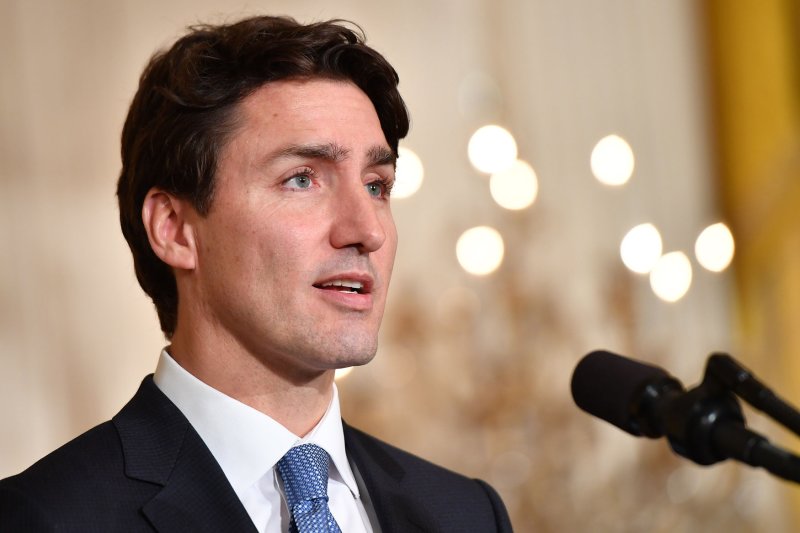Canadian Prime Minister Justin Trudeau plans to discuss trade and climate change during his December visit to China. File photo by Kevin Dietsch/UPI |
License Photo
Nov. 27 (UPI) -- The Canadian prime minister said a "progressive trade" relationship and climate change would be high on the agenda during a December tour of China.
Canadian Prime Minister Justin Trudeau announced during the weekend he'd travel to China for a five-day trip starting Dec. 3. The outreach to the world's second-largest economy is the latest in a series that began with his first official visit in September 2016 and comes amid cantankerous negotiations over the North American Free Trade Agreement.
During his visit, the prime minister's office said he'd "promote and progressive trade agenda" and highlight ways both economies would work together on fighting climate change.
"A strong relationship with China is essential to creating jobs, strengthening the middle class, and growing the Canadian economy," Trudeau said in a statement.
Trudeau in April spoke with his Chinese counterpart, Li Keqiang, to discuss ways to tackle climate change and cooperate in new trade areas such as clean energy.
Canada's outreach with China is part of a common theme for 2017, with leaders from oil-rich Alberta reaching out to Beijing early this year. In May, the Canadian government issued a public call to weigh in on the possibilities of reaching a free-trade agreement with China as the Central Bank of Canada warned that some of the protectionist policies from U.S. President Donald were leaving many economists and corporations guessing.
Canada is largely landlocked and relies almost entirely on the United States as its export destination for oil, a primary export commodity. Trump has advanced energy issues in Canada's favor, like the Keystone XL oil pipeline, but introduced a 20 percent tariff on soft lumber from Canada, another one of the country's top exports.
China is the No. 2 trading partner with Canada, after the United States. Chinese President Xi Jinping in July called for the "launch negotiations on a free trade agreement at an early date."
Canada relies heavily on oil and natural gas to drive its economy, though it's moved recently toward diversity through renewable energy programs. With U.S. energy policies migrating toward fossil fuels, environmental groups like Greenpeace said it will be China that will take the lead on the development of renewable energy.















